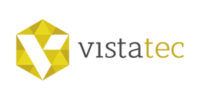The 2025 edition of ISPOR took place in Montréal, Canada, and brought together various stakeholders across the healthcare industry. This event is the leading global conference for Health Economics and Outcomes Research (HEOR). As Karen Tkaczyk, Vistatec’s Director of Sales – Life Sciences, observed on the ground, the focus this year was accelerating access to medicines and improving healthcare decisions through real-world evidence (RWE), economic analysis, and increasingly, artificial intelligence (AI).
Access, Affordability, and Policy Pressure
This year’s event came during a week of heightened tension in the U.S. healthcare space. A newly issued Executive Order on drug pricing was top of mind and added urgency to several discussions. Many attendees speculated about its potential impact and what regulatory and legal responses could follow. The consensus was that while the EO may be symbolic in some respects, its ripple effects are likely to shape market access conversations for the coming months.
Current goals include getting medicines to patients faster without compromising on safety, efficacy, or value. The emphasis on health economics has grown steadily in recent years, but it was particularly notable this year. Economic uncertainty and geopolitical complexity are forcing the industry to consider what treatments cost and to whom the benefits accrue.
Real-World Data and the Rise of AI Workflows
On the exhibit floor, AI and data innovation were everywhere. Vendors were showcasing tools to collect, analyze, and visualize real-world data. What stood out was the move from theoretical AI to embedded workflows.
AI-assisted processes were being applied to everything from protocol drafting to evidence generation. In particular, natural language processing (NLP) continues to gain traction for pulling structured insights from electronic health records (EHRs). Karen noted that many exhibitors now integrate AI into how they fill data gaps, such as combining clinical outcomes assessments with patient-reported outcomes (PROs) and survey data.
Patient-Centered Evidence
Sessions on digital health, decentralized trials, and PROs signaled the shift toward patient-centered data becoming a central part of HEOR strategies. While it’s not a new idea, the operational realities of integrating patient input into study design and data collection were given renewed focus. Standardizing these efforts across markets and datasets remains a challenge, especially when equity and inclusivity are considered.
As more organizations look to incorporate social determinants of health (SDOH) into their models, the industry is still grappling with how to collect, validate, and interpret this information at scale.
Infrastructure: The Missing Piece
One theme repeated across panel discussions was the need for better technical and procedural infrastructure. Questions about interoperability, governance, and privacy grow alongside the volume and complexity of data.
Innovations such as synthetic data, clean rooms, and tokenization were presented as solutions to long-standing privacy challenges. Multiple panels emphasized that privacy-enhancing technologies (PETs) will likely become foundational as the industry moves toward more federated and collaborative evidence generation models.
Several experts called for a broader alignment on standards, validation frameworks, and methodological transparency. Without this, the promise of AI and RWE will continue to outpace their adoption in regulatory and reimbursement settings.
Final Reflections
ISPOR 2025 confirmed that HEOR is playing a central role in how new treatments are evaluated, priced, and delivered. HEOR data is informing key decisions across the product lifecycle.
For Vistatec, the growing complexity of HEOR is clearly deeply connected to how we handle content, language, and localization. As the industry adopts more patient-centered, globally distributed research models, effective multilingual communication supported by agile content solutions will only become more critical.
Ready to investigate global content solutions in the Life Sciences industry? Contact Vistatec today to find out how we can help.

